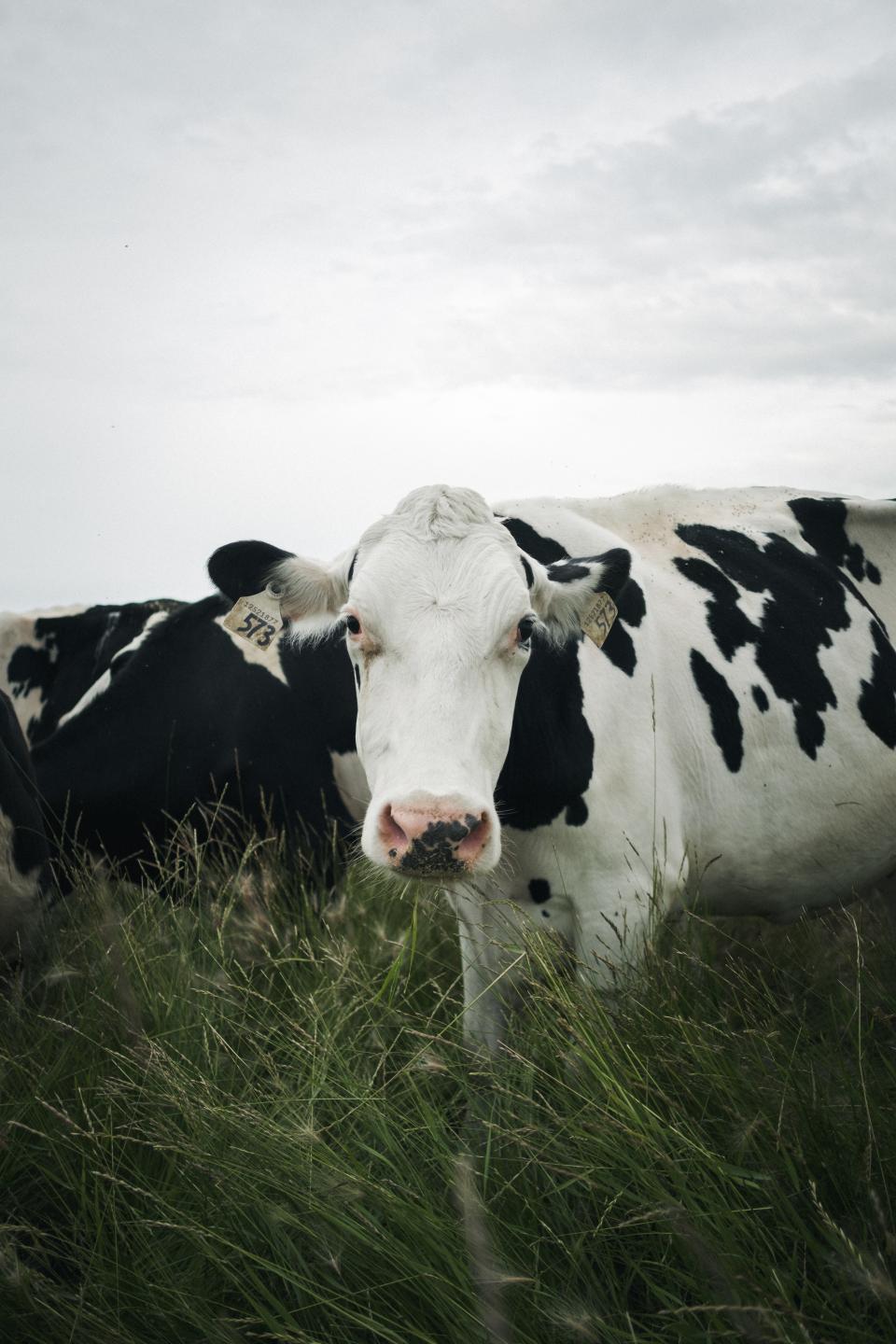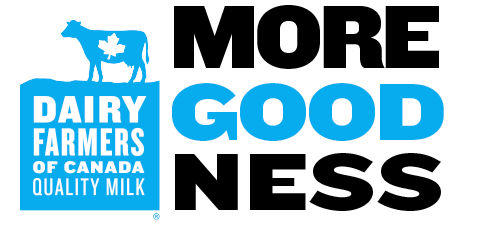Highlights
- Healthy cows produces more milk
- The National Farm Animal Care Council's Code of Practice sets standards for animal care and comfort that Canadian dairy farmers must follow as part of the proAction program.
- Healthy, comfortable cows are more efficient in turning feed into milk. That’s feed efficiency.
The deliciously pure, natural goodness of Canadian dairy we enjoy is only made possible because of our cows. Canadian dairy cows are the big cheeses when it comes to making the cheese (pun, intended). So, their wellbeing is very important to us. We recognize that a healthy cow makes more and better milk1, which makes for a happy farmer.
The National Farm Animal Care Council (NFAAC) lists out the Code of Practice for the Care and Handling of Dairy Cattle2 to be followed, that help make sure our dairy queens are feeling good. There are several aspects of cow-care that are detailed, including (but not limited to) healthcare, bedding, rest, stall conditions and husbandry practices. NFACC also created a generic assessment framework in 2015 for any farm animal.3 This framework informed the animal care module included in the proAction program to verify that all dairy farms respect the code. Here are a few notions in the Code.
Cow Health
The general welfare of a cow is linked to her health. As such, proAction requires that accurate and detailed health records are kept, and protocols are implemented to prevent disease transmission.
Cows are routinely monitored by both farmers and veterinarians to ensure their health is in good standing, and to prevent any issues from arising1. As we know well, prevention is key!
Barn design must allow enough space for comfort and health of each animal, while also maintaining ease of handling. There are interesting popular designs of windows to allow for adequate ventilation and air quality, which react to outside temperatures to keep barns comfortable.. Barns must also be cleaned frequently (through mechanical or automatic ways, thank goodness… or else that would be quite a lot of shoveling!).
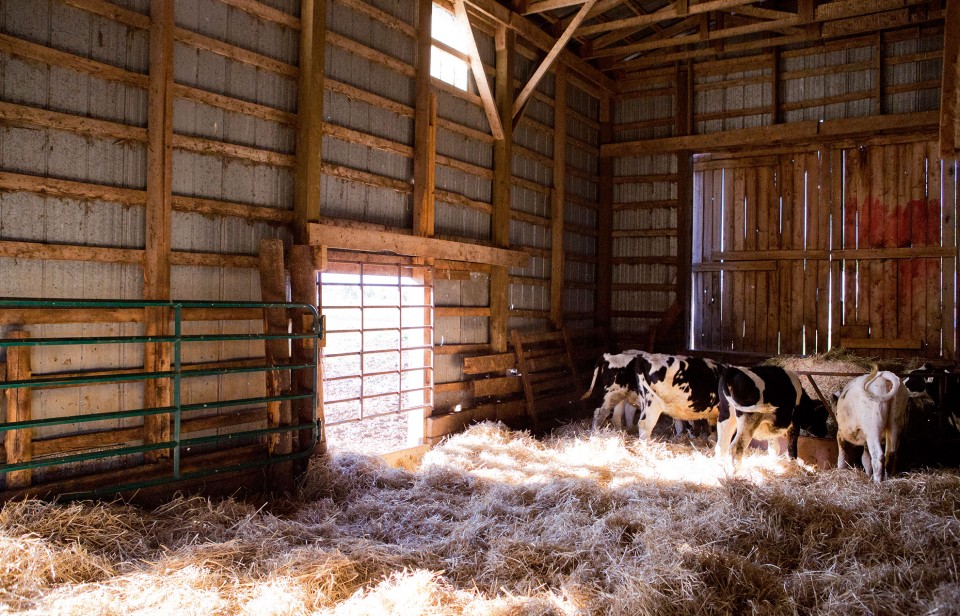
Cow Comfort
Comfortable living conditions can impact happiness. So, what makes a cow’s living conditions comfortable and conducive to rest and rumination? Cows should have proper bedding (mattresses can be a frequent sight in dairy barns). There are a few good options for bedding, including sand, straw, wood shavings, and sawdust. After all, cows do like to lie down for about 10 – 12 hours a day (not consecutively!) to rest and ruminate.
Measures are typically taken to ensure the flooring has good traction (to prevent slips and falls). Their gait and hooves are consistently monitored, and they are given ‘pedicures’ to maintain their hooves and legs health. Cows respond well to comfortable bedding, good barn ventilation, brushes, gentle voices, music and other such factors that create a positive environment.
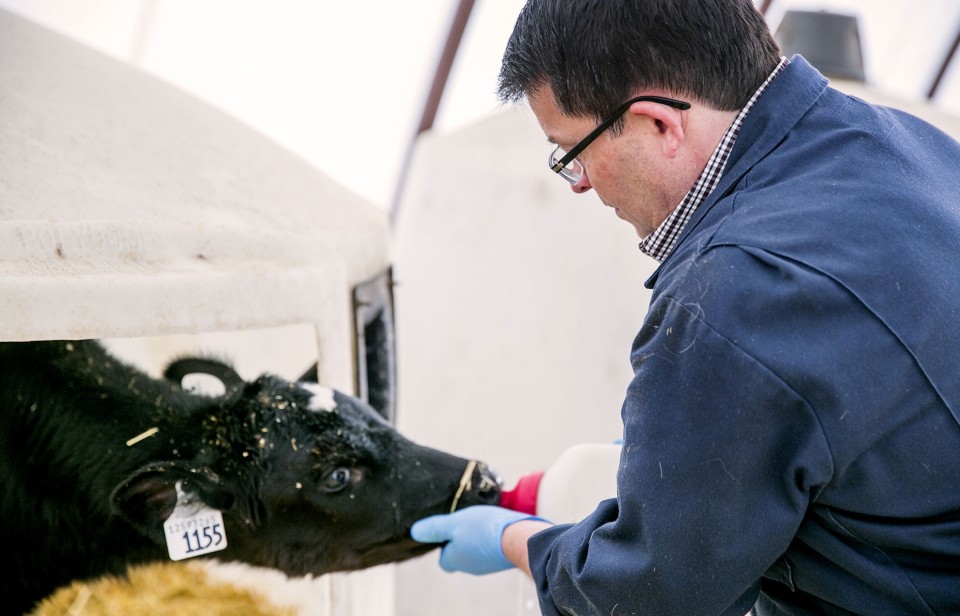
Husbandry practices
Farmers are aware that their own attitudes and actions have a direct impact on their cow’s behaviour and comfort. Husbandry practices are outlined within the Code of Practice and are updated periodically through experience and in light of scientific research. The Code details that cows should always be handled in a calm fashion, and moved in specific ways that keep them calm and prevent them from being frightened. Also, the fact that farmers have routine contact with all cattle helps build that confidence and relationship.
The above points are a glimpse into the guidelines each Canadian dairy farmer must follow. And Canadian dairy farmers frequently go above and beyond the listed guidelines4 as they collectively invest several hundreds of millions of dollars annually--in housing, technology and equipment that improve cow comfort. Some farmers tell us they go as far as playing music for their cows (turns out some cows are into slow jams5, while other farmers say their cows like country music… who knew!), give their cows “pedicures”, and hire dedicated bovine nutrition experts for customized meal plans.
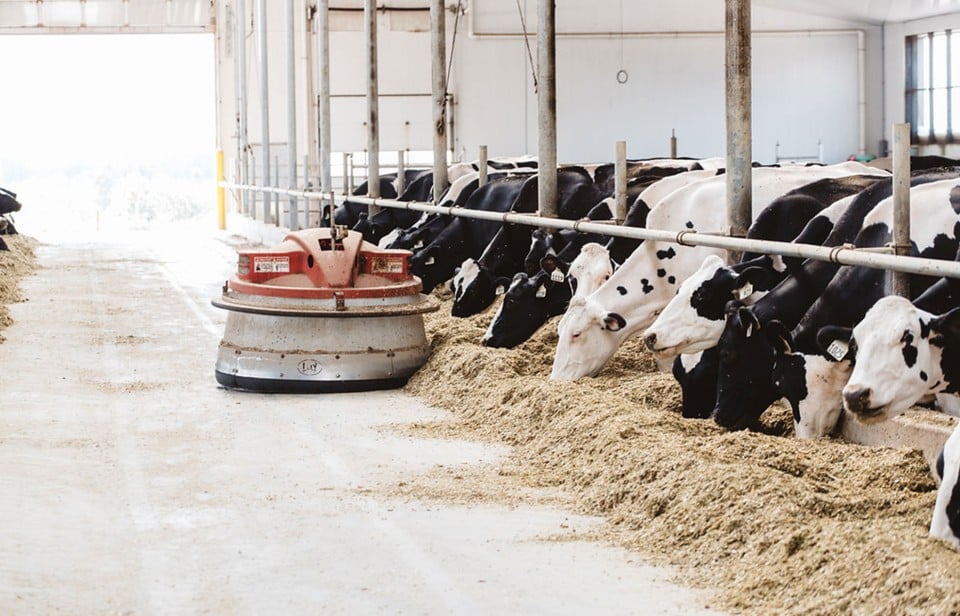
Turning Feed into Milk
Cow health, welfare and good diets are not the only secrets for high producing cows. In developed countries, today’s cows are more productive than their ancestors 25, 50 or 75 years ago. We know this because we can go back to old days’ records and compare notes. Genetic and environmental factors also help with cows converting feed more efficiently into milk: “Today, we have a third of the number of cows we had in 1960, and we’re producing more milk, says Dr. Christine Baes of the University of Guelph, That’ a pretty good sustainability story.’ 6
In terms of food, a cow’s nutrition is closely monitored, and her diet is formulated to keep her in good health and producing nutritious, high quality milk. There are many ways to tweak the diet to be more environmentally friendly and reduce emissions. For example, a farmer may opt to change the formulation of diets to incorporate legumes in the feed7. another may want to reduce protein level in its feed ration, a third farmer will use a feed supplement8, 9, 10, and a fourth farmer will do something else. The way crops are grown will also influence the farm’s overall footprint. Each action in itself may be a piece of the puzzle – not a magic bullet.
While all economic sectors should pitch in to reduce their own carbon footprints, every farmer should have the discretion to choose meaningful actions that are good for their individual farm, its resilience in its specific local geography and ecosystem, to build resilience to the climate challenges they are more likely to face: for example, different areas in Canada have higher risk of drought, of hurricane or of severe winter weather.
On a dairy farm, the cow itself is a significant source of emissions as they digest the forages they eat. Genetic and genomic evaluation indices can give farmers insight into the feed efficiency of cows, 11 (how efficient a cow is in converting the feed she eats into milk she produces) or even methane efficiency 12. Research is ongoing to understand better how genomic evaluations can give insight into methane reduction, into resilience of cows to illness and other factors farmers care about1, 143. Genomics is basically having a large database to choose the trait farmers want for future animals as they work towards making their dream of a future herd with healthier, productive animals. And then, they match the right bull to each cow. One step at a time.
Indeed, a lot of science and data inform farming today, adding to tradition and knowledge of generations before, to contribute to the success of dairy farms tomorrow. But to get back to the basics, we could say that a healthy cow produces more of the great tasting fresh milk we’ve grown accustomed to drinking. Cows mean a lot to farmers, so farmers want to make sure that they receive the respect and care that they deserve. Every great Canadian dairy product comes from the milk of one of almost one million Canadian dairy cows.
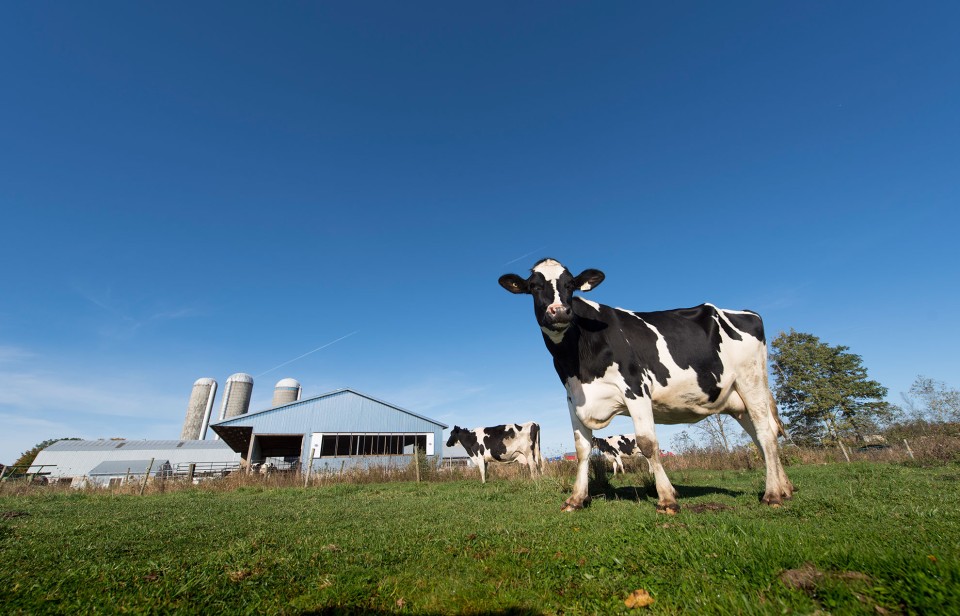
Sources
- Merk Manual. 2021. Interactions Between Health and Production in Dairy Cattle. pmerckvetmanual.com/management-and-nutrition/health-management-interaction-dairy-cattle/interactions-between-health-and-production-in-dairy-cattle
- National Farm Animal Care Council. 2023, Code of Practice for the Care and Handling of Dairy Cattle.
- National Farm Animal Care Council. 2015. Animal Care Assessment Framework. nfacc.ca/animal-care-assessment
- Dalhousie University: News & Events. 2018. The Conversation: In Defence of Canada’s Dairy Farmers. dal.ca/news/2018/10/31/the-conversation--in-defence-of-canada-s-dairy-farmers.html
- NPR. 2001. Moo-d Music: Do Cows Really Prefer Slow Jams? npr.org/sections/thesalt/2014/03/06/285314648/secret-life-of-cows-part-deux-milking-mood-music
- Progressive Dairy. 2024. Changing headlines: efforts by Canadian dairy industry to create resilient cows. agproud.com/articles/60695-changing-headlines-effort-by-canadian-dairy-industry-to-create-resilient-cows
- Drawdown Project. Improved Cattle Feed. drawdown.org/solutions/improved-cattle-feed
- Federation of American Scientists. Livestock Enteric Methane Mitigation (U.S. research) fas.org/publication/climate-smart-cattle/, sparkclimate.org/enteric/home
- Journal of Dairy Science. January 2025. Volume 108, Issue 1 -Special Issue on Feed Additives for Methane Mitigation. journalofdairyscience.org/article/S0022-0302(24)01399-7/fulltext
- Clear Center. 2021. How can feed additives reduce greenhouse gas emissions? clear.ucdavis.edu/explainers/how-can-cattle-feed-additives-reduce-greenhouse-gas-emissions
- Lactanet. 2021. Introducing Feed Efficiency. lactanet.ca/en/introducing-feed-efficiency/
- Lactanet. 2023. Introducing Methane Efficiency. lactanet.ca/en/introducing-methane-efficiency/
- Lactanet. 2024. Celebrating 15 Years of Genomic Selection. lactanet.ca/en/celebrating-15-years-of-genomic-selection
- University of Guelph et al. 2024. The Efficient Dairy Genome Project. genomedairy.ualberta.ca/
